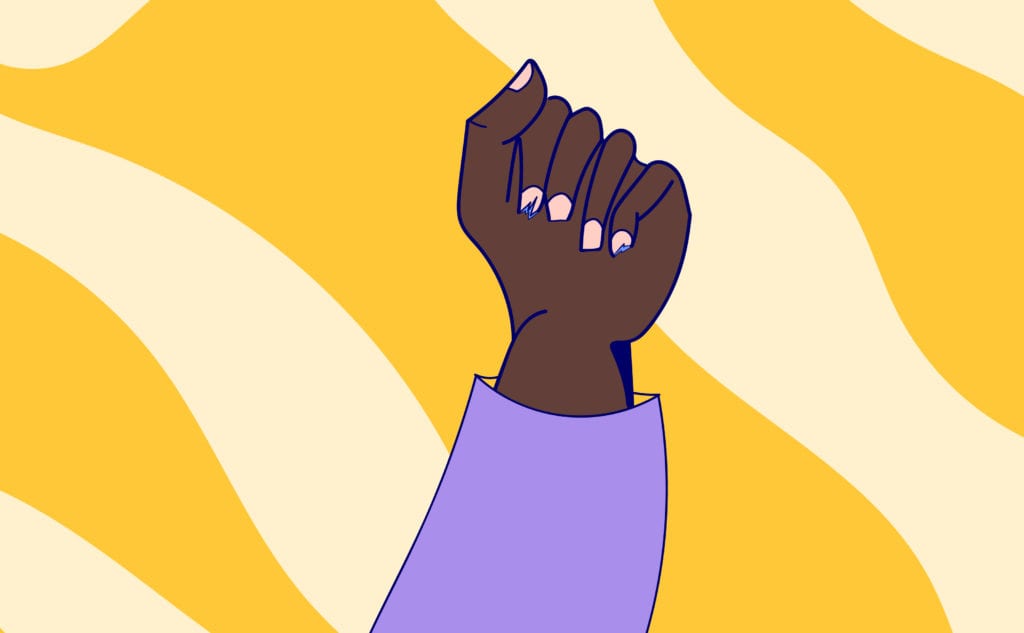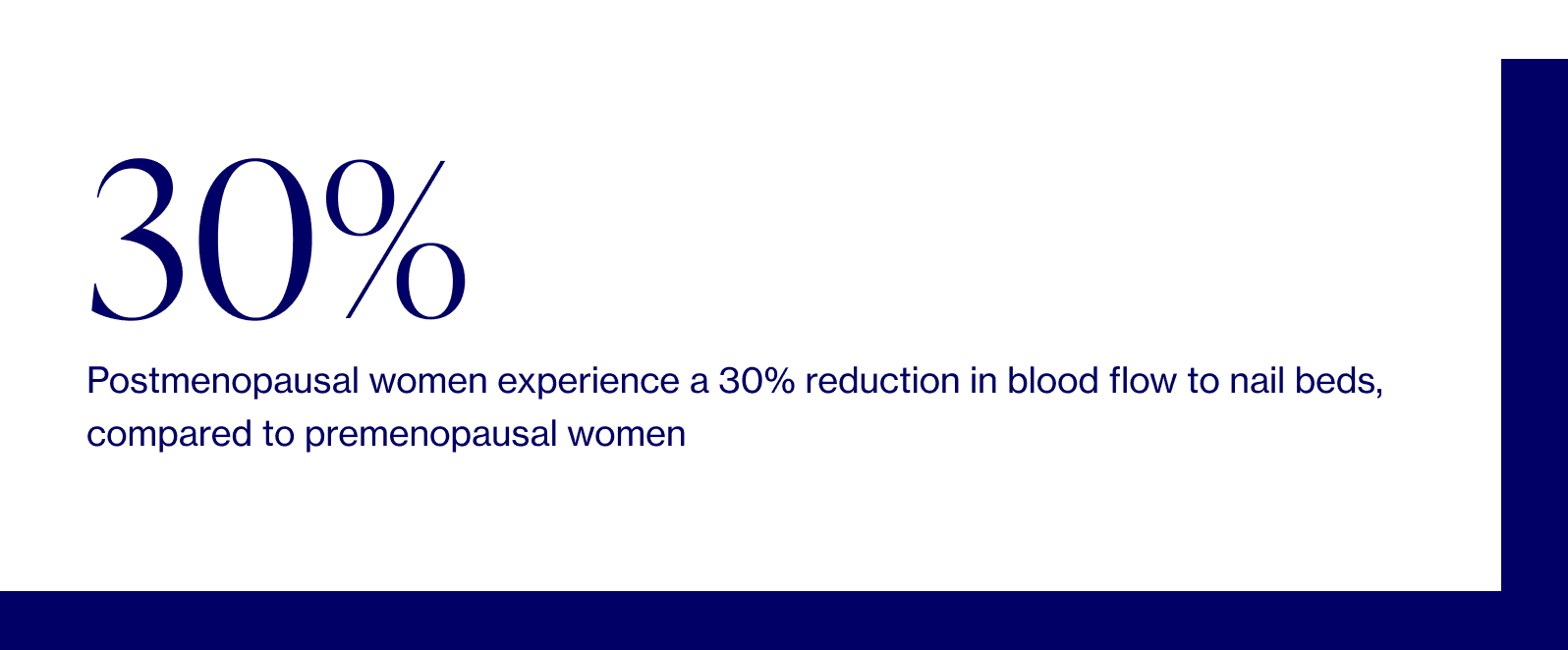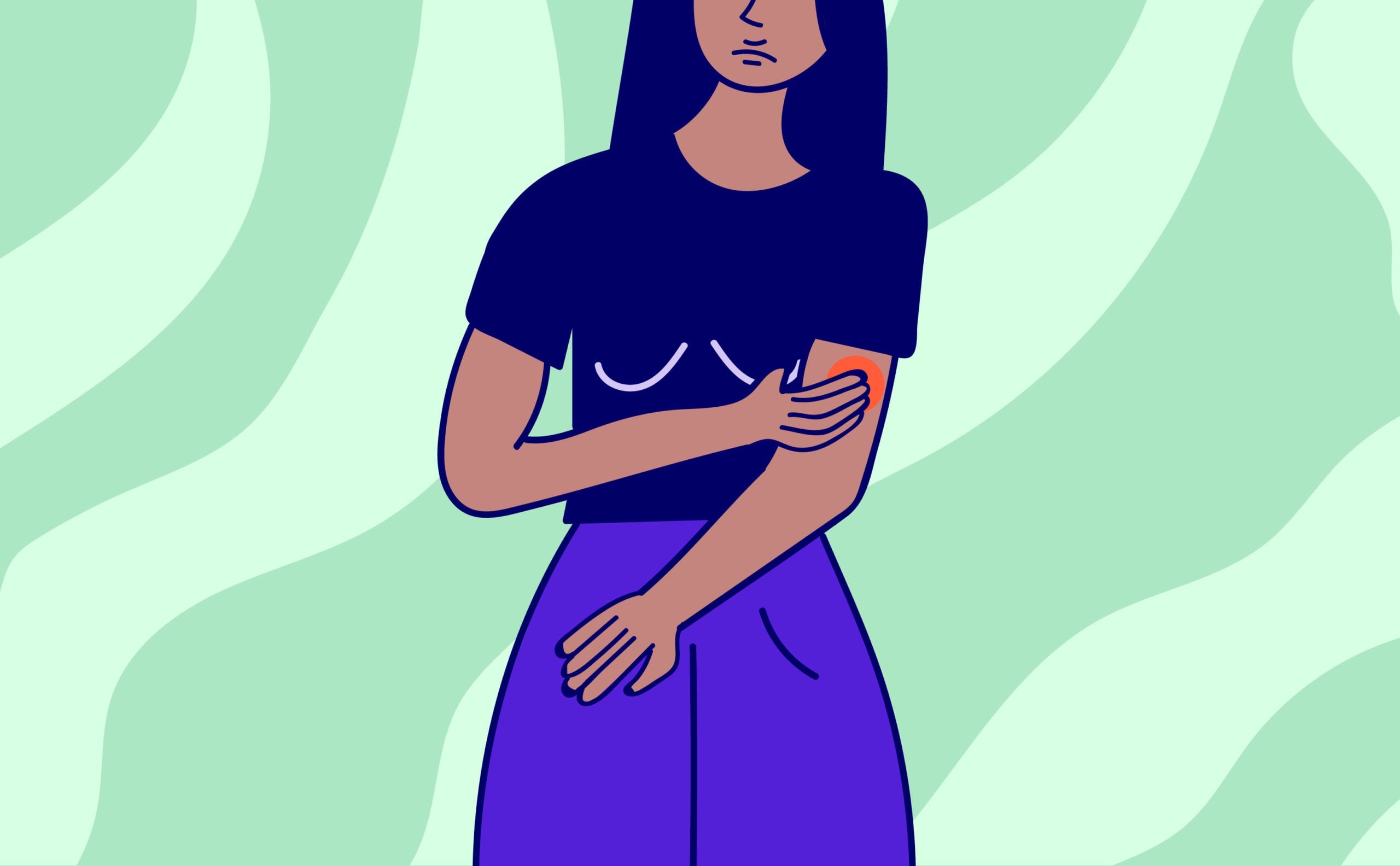We’re all about equipping you with the know-how to understand your symptoms, and we especially emphasize the specific, tangible ways to manage them. Our goal is to empower YOU to take charge of your menopause journey, starting today.
A quick note about product recommendations…Elektra Health is not paid to feature any products. We just like them and think you might too, though we can’t guarantee any results.
Lifestyle
Nutrition & Diet
Fill up on good-for-you fat
Essential fatty acids, such as those found in almonds or avocado, are super important for nail strength.
Incorporate iron-rich foods
Animal-based products such as oysters and beef are chock-full of iron. Some plant based foods, such as raisins, lentils, kidney beans, and tofu will also provide dietary iron. If you find that you’re still deficient (many of us are), consider a supplement…more on that below.
Don’t forget about biotin
Call it what you want — biotin, vitamin B7 — but we need it. 30 mcg daily, to be exact. Good news: one large egg contains up to 83% of our daily recommended intake. Salmon and pork are also decent sources.
Collagen, anyone?
To naturally increase your stores of collagen, sip bone broth or eat gelatin/bone cartilage from beef, pork, lamb, chicken, or fish — this can work wonders on our nails AND hair.. A win-win!
Please note, supplement studies show improvement only after several months of taking, so you can’t expect results overnight.
Holistic Practices
Lather on the cream
We want a good-quality hand cream containing vitamin E. Coconut oil is also great for massaging into cuticles to help grow hydrated, healthy nails — plus, it has added anti-yeast properties to prevent fungal infections, especially for those with diabetes.
Give those nails a break from polish!
Especially gel and acrylic.
Avoid harsh nail polish removers
Products containing acetone will dehydrate nails even further.
Glove it up
Always, always, always use rubber gloves when washing dishes (your skin will thank you, too!).
Supplements & Over-the-Counter Solutions
Supplements and over-the-counter solutions may be effective in supporting your nail health…if you choose wisely. We recommend consulting with your healthcare provider first to ensure you’re using something with optimal efficacy and safety (i.e. backed by clinical research) or consulting with Elektra’s providers. Here’s a quick primer from our team on how to go about selecting high-quality supplements.
Oral collagen
If you’re not getting sufficient collagen from food sources (bone broth, gelatin, bone cartilage), consider taking it in supplement form to support skin elasticity, nail, and hair health. HUM’s product has the added bonus of hyaluronic acid and Vitamin C as well. We’ve also used these products from Vital Proteins and this one from Great Lakes Wellness.
Hyaluronic acid
Hyaluronic acid in oral supplement or topical form can help boost hydration.
Biotin & calcium
Both biotin and calcium can be taken in supplement form to strengthen nails and reduce ridges.
Prescription
Hormonal
Hormone replacement therapy (HRT) is not prescribed for brittle nails alone; however, supporting nail health can be an indirect benefit of the treatment since estrogen is vital for skin integrity, thickness, and elasticity.
Not sure if HRT is for you? Our full guide answers all your questions on what it is, how it works, who it’s best for, and why there’s so much controversy around it.
Non-Hormonal
Non-hormonal medications are not usually prescribed for brittle nails alone. Instead, they’re used to treat separate medical issues that may be leading to dry, brittle nails, such as hypothyroidism.
If we’re talkin’ over-the-counter, then there are a few nail strengtheners containing pistacia lentiscus and hyaluronic acid that have been shown to help strengthen brittle nails. SI-Nails is a great example.
We’re always keeping an eye out for emerging research and the latest clinical studies. Subscribe to our weekly Elektra Digest for the latest, science-based info direct to your inbox. Something work well for you that’s not listed here? We want to hear it! Shoot us a note at [email protected]. (We’re human, promise.)
Pro tip #3
Give those nails a break from polish, especially gel and acrylic which can be damaging to the nails and cuticle.
Disclaimer: This information is for general educational purposes, and should not be used as a substitute for medical advice, diagnosis, or treatment of any health condition or problem.
As with anything you put into your body, taking dietary supplements can also involve health risks. You should consult a medical professional before taking supplements and inform your doctor about any supplements, as well as any medications you already take, since there may be interactions.
Helpful? Share the wealth!
Share with a friend who deserves evidence-based expertise &
solutions.





